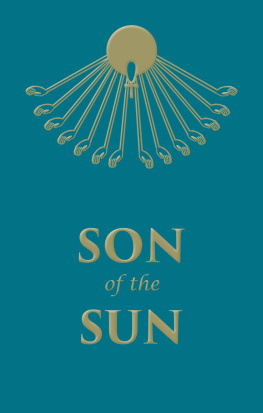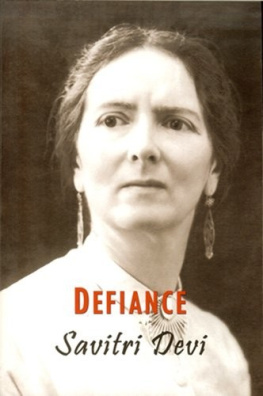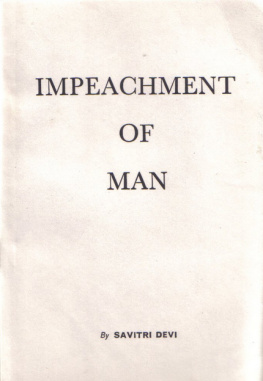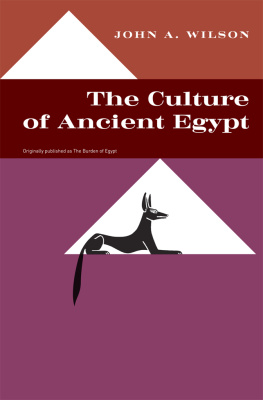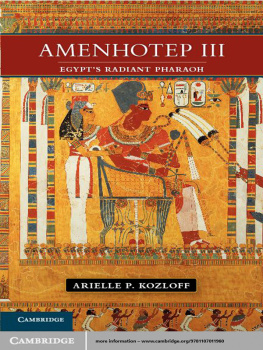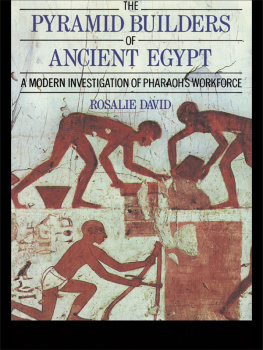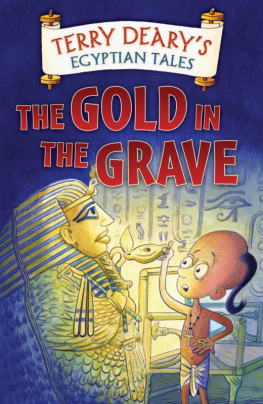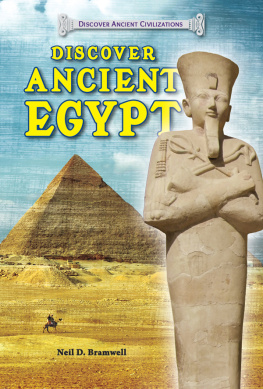Son of the Sun
by Savitri Devi
1956, 1996, and 2015 Supreme Grand Lodge Of The Ancient and Mystical Order Rosae Crucis. All Rights Reserved.
This publication is for your personal, private use only, and may not be used for any commercial purpose. No part of this publication may be reproduced, distributed, displayed, or transmitted in any form or by any means, including photocopying, recording, or other electronic or mechanical means, including information storage and retrieval systems, without the express and prior written permission of Supreme Grand Lodge Of The Ancient and Mystical Order Rosae Crucis, except in the case of brief quotations embodied in reviews. For permission requests, please contact: Supreme Grand Lodge Of The Ancient And Mystical Order Rosae Crucis, Inc., Rosicrucian Park, 1342 Naglee Ave, San Jose, California 95126.
The information in this book is distributed on an as is basis, without warranty. Although every precaution has been taken in the preparation of this work, neither the author nor the publisher shall have any liability to any person or entity with respect to any loss or damage caused or alleged to be caused directly or indirectly by the information contained in this book.
Contents
Dedication
TO MY HUSBAND
Thou art in my heart;
There is no other that knoweth Thee,
Save Thy Son, Akhnaton.
Thou hast made him wise in Thy designs
And in Thy might.
AkhnatonLonger Hymn to the Sun
(Translation by Breasted)
The modern world has yet adequately to value or even to acquaint itself with this man who, in an age so remote and under conditions so adverse, became the worlds first idealist and the worlds first individual.
Breasted History of Egypt , page 392
Introduction
R oughly fourteen hundred years before Christ, at the time Egypt was at the height of her power, King Akhnaton ruled over that great country for a few years.
He was a thinker; he was an artist; he was a saintthe worlds first rationalist, and the oldest Prince of Peace. Through the visible disk of the SunAtonhe worshiped the Energy within the Diskthe ultimate Reality which men of all creeds still seek, knowingly or unknowingly, under a thousand names and through a thousand paths. And he styled himself as the Son of that unseen, everlasting Source of all life. Thou art in my heart, he said in one of his hymns, and no one knoweth Thee save I, Thy Son. And his words, long forgotten, have come down to us, recorded upon the walls of a noblemans tombthese amazing words in what is perhaps the earliest poem which can be ascribed with certainty to any particular author: I, Thy Son....
Akhnaton is one of the very few men who ever put forth such a bold claim. The aim of this book is to show that, in doing so, he was no less justified than any other teacher of the truth, however impressive may appear the success of the latter contrasted with his defeat; however widespread may be his fame, contrasted with the total oblivion in which has lain the Egyptian king for the last thirty-three hundred years.

Who is a son of God?
There are men who vehemently deny the honor of that title to any person whosoever, in consistency with the fundamental idea of a transcendent God, above and outside the Universe and distinct from all that is within it. Others recognize no Son but the founder of their own creed, to whom they attribute a miraculous birth as the proof of a divine origin.
In harmony with an entirely different conception of God, we believe that any man who realizes to the full that true relation of his finite individuality to the immanent, impersonal Essence of all things can call himself the Son of Godat once human and divinefor the relation of which he is then aware is one of substantial identity with that supreme Essence. We also believe that, properly speaking, the word God has no meaning except to those who have realized this. Such men are rare, always and everywhere. But they alone stand to justify the existence of the human species.
The aim of this book is to show that Akhnaton was one of those few men, and the earliest known, perhaps, among those whose life can be dated.

The failure of his teaching to survive him as an established religion can be regarded as one of the tragedies of history. We can explain it; we can even try to redeem it. But the bitter fact remains, for nothing can undo the past.
Other great souls have had disciples to preach their message, martyrs to bear testimony to their greatness in torture and death, missionaries to carry their name and domination to the limits of the earth; they have had commentators, admirers, detractorsphilosophers, poets, artiststo keep their memory alive century after century. But Akhnatons fate was different. He had no sooner died than the fervor of his followers seems to have been spent out. Within a few years, his name was anathematized, his new city pulled down stone by stone, his remains profaned and his memory systematically destroyed, without, apparently, a single cry of protest on the part of any of those eighty thousand or more who had, in their zeal, left Thebes with him, thirteen years before. Ever since then, until a part of his foreign correspondence and fragments of his hymns were brought to light, some fifty years ago, there was not a man on earth who knew of his existence. And to this very day, notwithstanding the genuine admiration of a learned few for his rational religion, there are hardly any people in the world whose daily life he fills with his presence.
Why?
Men who are in the habit of judging in haste will at once infer that his teaching cannot have been as perfect as those that have become the nucleus of living faiths.
But success is not the criterion by which one should decide on the value of a religion. In the diffusion of any doctrine far and wide there are too many factors at work for one to be able to ascribe its conquests to the sole amount of truth it contains. Moreover, it is only when that amount of truth appears to be of immediate and tangible use that it appeals to the herd of men sufficiently to help the propagation of the creed. The finer side of every religion is precisely that which escapes the attention and leaves unmoved the sensitiveness of its average followers. Therefore the number of people who profess a certain faith, and the extent of the geographical area in which it is recognized, prove nothing.
The quality of the nations that officially adhere to it does not stand any better as a guarantee of its value. For it is man who makes religion; not religion that makes man. Through some historic accidentmigration, conquest, or the whims of some powerful chiefa sublime teaching can become and remain the collective creed of a pack of gross barbarians. They will no doubt misunderstand it; but they will, none the less, hold sacred the whole mythology and symbolism that tradition has attached to it. And reversely one has seenand one sees stillcultured, progressive, rationally-trained nations adhere to childish dogmas invented or accepted by their uncritical ancestors. True, they do not fail to produce subtle theologians to interpret the nonsense in terms of hidden wisdom. But nonsense it remains.
A religion should be judged in itself, independently of its real or apparent influence upon any society, apart from its success or failure among men. And its founderwhen it has a founderis the only man whose life and personality one should consider when speaking of it. Judged in that manner, from the sole standpoint of its inner beauty, Akhnatons simple and rational religion, of which hardly anybody knows, can be compared advantageously with recognized faiths professed by millions of men. And its promoter, with perhaps not more than one or two living disciples, can nevertheless be ranked among the divine souls that honored this earthamong those whom we call incarnations or Sons of God.

